White defends Evans' selection in Australian Olympic Team
Team director says Australia rode a tactically sound race
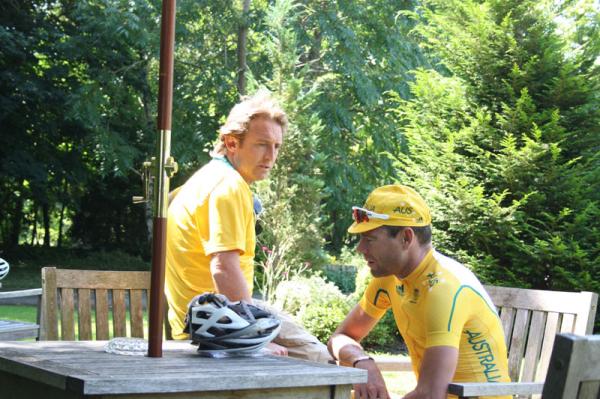
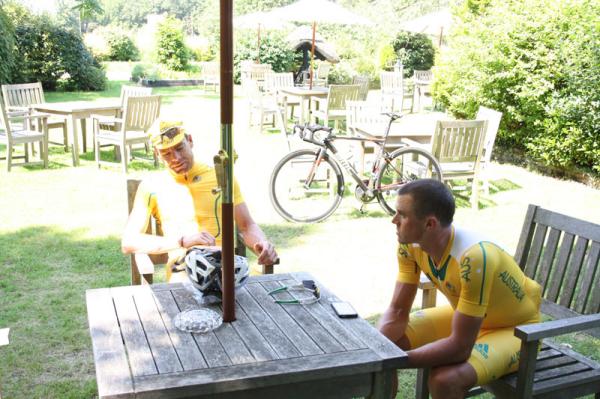
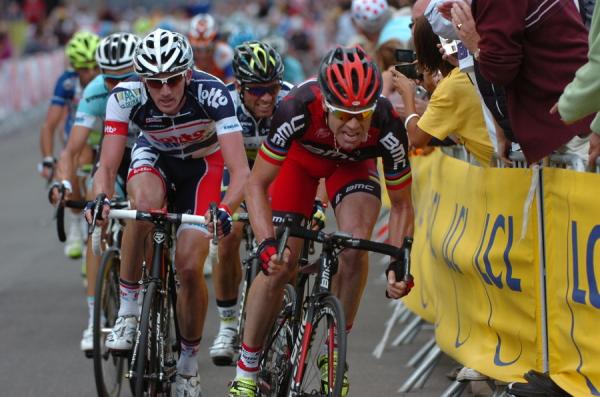
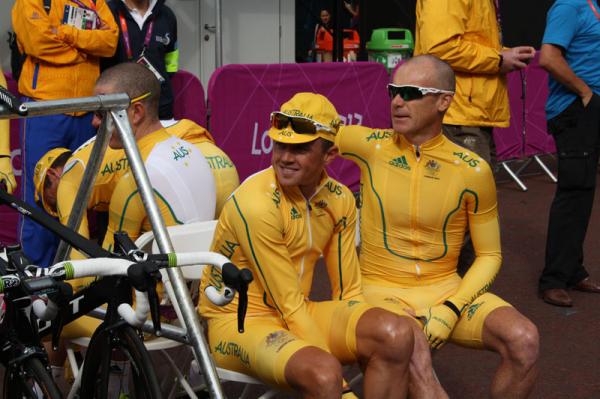
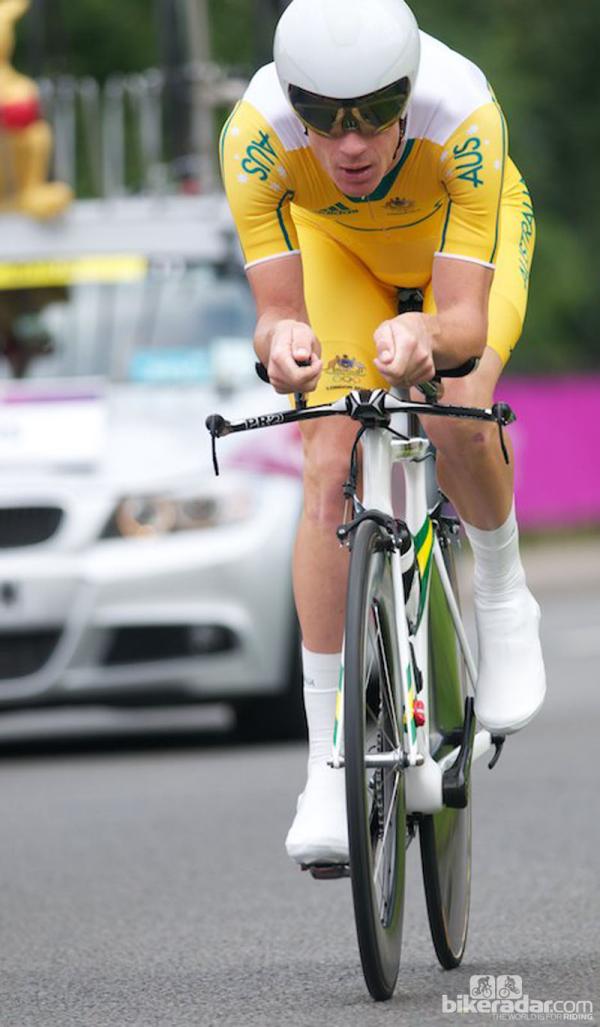
The days following the road cycling program at the London Olympic Games has unearthed many questions regarding Australia's performance which netted a sixth place for Stuart O'Grady in the road race, and also for Michael Rogers in the individual time trial. Team director Matt White remains steadfast in his defence of the five-man team, four of which rode in Beijing.
White: Australia to ride aggressive Olympic road race
Experience counts for Australian men's Olympic road team
Goss dismisses Cavendish’s comments about Australian's tactics
O'Grady rises to Olympic challenge
Rogers feeling fresh ahead of time trial
Rogers leaves nothing in the tank for sixth in Olympic time trial
Was the selection of Cadel Evans a mistake?
The Australian team for the Olympic Games was named on June 25. The 2011 Tour de France winner became ill mid-way through his title defence and struggled against rock-solid Bradley Wiggins and his Sky team.
It would unusual for anyone to finish the Tour de France and for them not to be suffering from some degree of fatigue. White admits that Evans, along with the rest of the team were tired following the three week grand tour.
"We sat down and spoke with him on the Monday and the Tuesday and he was quite confident that he would be ready to contribute in the role that we needed him to on the Saturday," White told Cyclingnews from London.
Cycling Australia had nominated Luke Durbridge, Heinrich Haussler, Mathew Hayman or Mark Renshaw to come into the team should there be a withdrawal and White kept in contact with the riders throughout the week before the race to keep them on stand-by. A decision had to be made on the final line-up in advance of 48 hours prior to the race start in The Mall.
"Once the team has been picked for the Olympic Games the riders then have to pull themselves out unless it's due to acute medical issues or injury," White explained.
Get The Leadout Newsletter
The latest race content, interviews, features, reviews and expert buying guides, direct to your inbox!
Another talking point regarding Evans was whether there had been pressure from above to have a Tour de France-winner in the Australian team. An endorsement deal with the official vitamin supplier of the Australian Olympic Team featured commercials with Evans in them months before his selection.
"It didn't have anything to do with the Australian Olympic Committee," said White. "If Cadel Evans didn't think he was capable of racing the Olympic Games road race on the Saturday, then he would have pulled himself out of the Olympic Games.
"I didn't speak to anyone from the AOC. It was a decision that had no input at all from those guys.
"I'm sure Cadel Evans didn't go to the Olympic Games to get another tracksuit. We went to the Olympic Games with the most experienced team and those guys were there to perform."
Did the team under-perform given the calibre of riders put together?
The team of Evans, Simon Gerrans, Matt Goss, Stuart O'Grady and Michael Rogers was an impressive one on paper; easily the best line up the country had put together for an Olympic Games in terms of both experience and performance.
After O'Grady's sixth place in the road race, Evans finished 79th, Gerrans 82nd, Goss 83rd and Rogers was 89th in the group 40 seconds behind winner Alexandre Vinokourov (Kazakhstan).
"It's road racing," surmised White. "We rode a great race. Yeah we would have liked to have medalled but if you don't win a medal, does that mean you didn't perform? Only three nations got a medal.
"If Stuey had run 25th in the breakaway then I suppose a few questions could have been asked. He didn't and he was never going to.
"The race got out of hand it was crazy," he continued. "It got out of hand on a few different fronts and I think some teams made a few tactical mistake but our guys rode very well."
Despite their advantage with several options for the race win, tactically, had they been out-smarted?
Much was made in the perennial battle between arch-rivals Great Britain and Australia whereby the latter was deemed to be at an advantage due to the fact that they had more cards to play, as opposed to "plan A and the rest of the alphabet" with Cavendish.
Given O'Grady's placement in the race-defining break, did that then disadvantage riders like Goss and Gerrans who rely on his experience? Not so, according to White.
"Coming out of the Tour de France we knew Stuey had probably come out of it the best out of anyone," he explained.
"If Stuey hadn't of been in the breakaway that went down the road early it would have been a different situation as well. It was a great group of guys that we had but we had the most experienced guy in the peloton in the winning breakaway which is also a nice advantage."
Apart from the fact that Australia was down to one entrant, Rogers, in the men's individual time trial, there was no question regarding the 32-year-old's performance. Rogers had nothing more to give, and his team could not have asked any more from him.
"We knew that Mick would have to be on one of his best-ever time trials to medal against Wiggo, Froomey and Tony Martin," said White. "It would have been nice to have finished fourth or fifth but he certainly left nothing behind."
The extra days that Rogers had between the road race and the chrono appeared to have done the former three-time world champion some good, after his three weeks riding for Wiggins in the Tour de France.
"It's funny how guys come out of the Tour de France, a lot can change in a week," White mused. "Eight or nine days' recovery certainly did him the world of good."
As a sports journalist and producer since 1997, Jane has covered Olympic and Commonwealth Games, rugby league, motorsport, cricket, surfing, triathlon, rugby union, and golf for print, radio, television and online. However her enduring passion has been cycling.
Jane is a former Australian Editor of Cyclingnews from 2011 to 2013 and continues to freelance within the cycling industry.